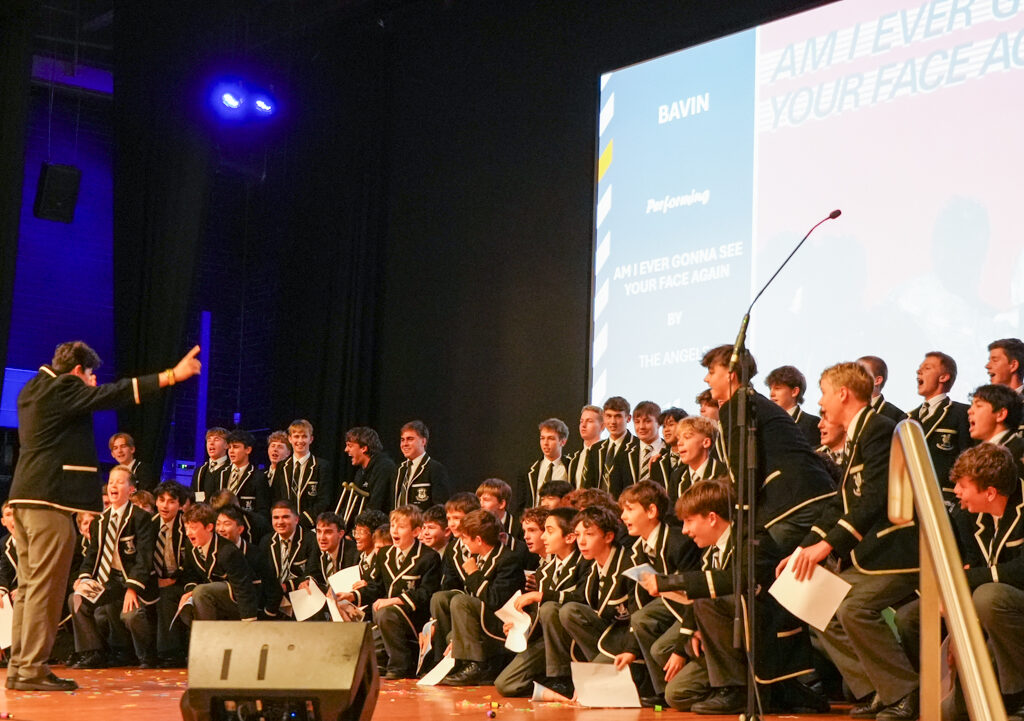Digital Responsibility and Citizenship: The Law and Technology
As our young men slowly grow into their bodies, they have already grown into the latest technological devices which are either in the form of a smart phone, an iPad or laptop computer. Whichever model is preferred, one thing is fairly certain, they are connected. They are connected to each other via various communication platforms – some public, some private. Some novices (like many adults) are using just email and text message.
The pace of technological progress has been swift, and our youth have been able to navigate their way through forums and platforms, almost constantly, to remain in contact. They share ideas, thoughts and opinions, and at times, even knowledge and school work. The law is often slow to change in so many areas of life, yet when it is compared to the pace of technological change, it can look even more lethargic. Many of the laws regarding technology and the way we communicate using it, have been slowly updated, but laws on ‘sexting’ and publishing have altered quite recently.
Our young men, both over and under 18 years of age, are often breaching the law by the way they communicate. Many breaches are mainly poor decisions about the way they are representing themselves, and some communicate in ways they would not do if they were face-to-face with that person. The laws around ‘publishing’ often get students into trouble as ‘publishing’ actually requires permission – if the content involves somebody else. Publishing can be taking a screenshot and posting it, or even just forwarding an email or text without expressed permission.
Defamation. A person whose reputation has been attacked can sue for defamation. This is easily done by students, in person, and can be passed off as a joke or banter. However, if it is online, students can be brought to justice because of what they write. Many young people assume that this will not happen to them, and that there will not be a complaint brought against them – that is, until it happens. Their legal rights and restrictions governing technology use is known as digital law and even though Newington covers this topic in all year groups, some students still believe it does not apply to them. They have been brought up on technology use. They may have even broken the law in the past with no consequences from the law which can lull them into a false sense of security, believing that nothing in a legal sense will ever happen to them.
What our students view, produce and distribute makes up their digital footprint, and it is a profile that may alter over time but will never be completely deleted. Students have easy access to the internet, smart phones which photograph and record videos in ways that are technological sophisticated, and they are able to publish their pictures and videos with the click of a button. It is this ease of access and distribution that is getting so many young people into legal trouble.
Our Digital Citizenship Program, put together last term by Mrs Lily Young, aimed at educating the boys in an age-appropriate way to ensure they do not break the law, appears to have been successful with the vast majority of boys, but has clearly not made enough of an impression on some.
Taking photographs or recording videos of other students and posting them on a social media network could break three laws simultaneously. Our Youth Liaison Office from Marrickville Police, Senior Constable Craig Kelly, has been on call, recently speaking to some students about their online behaviour and how the law views this communication. Of course we want our boys to comply with the law, but we actually want a little more than that. If our motive for posting something is to harm someone in some way, then this displays poor character. This is an ethical issue as much as a legal one. Protecting one’s own digital identity is a good thing but looking after another’s is even better. Publishing anything defamatory is fraught with legal danger but it is also ethically wrong. Our digital etiquette and our standards of communication need to be responsible and decent, and we should encourage all those who are in communication with us to do the same.
Whilst the law tries to keep up with technology, it is essential that we educate our young men to be decent and honourable as well as act within the law. Our rights and responsibilities allow freedom in the digital world, but this can be shattered too easily by poor online behaviour. Common excuses for poor, slanderous, or even illegal communication and publishing, are human. Young people often hide behind their poor errors of judgement, claiming that it was only a joke or that they were attempting to generate humour.
The message at Newington College is clear. Be a good, decent and responsible digital citizen and the law won’t be needed. Just in case they are forgetful of their responsibilities as a decent digital citizen, we remind them of the law.
We encourage all parents to manage the technology of their children thoroughly. Policing their communications may be required, but supporting, and being a good, decent and responsible digital citizen, is essential.
Some advice for our boys:
- Stop and think before you send any image of yourself or anyone else
- Think about the consequences of any comment or image you publish online
- Remember that your online footprint can never be totally deleted and may be used as evidence against you
- Consider others and their feelings regarding the content of a few postings
We encourage open discussions between parents and boys on all matters of digital citizenship. If parents or boys feel that the school can offer advice in this area, please contact your Mentor who will pass on your concerns.
Mr Bob Meakin
Deputy Head of Stanmore – Students
Mrs Lily Young
Learning and Teaching Librarian



